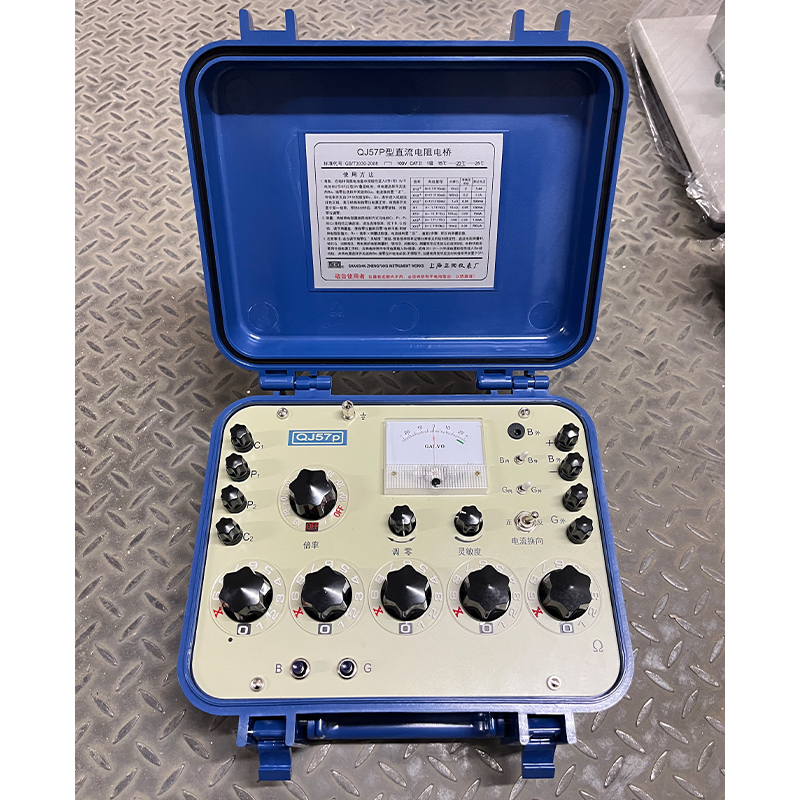insulation resistance tester 2000v factories
Understanding the Importance of Insulation Resistance Testing with 2000V Testers
Insulation resistance testing is a critical practice in electrical engineering and maintenance, ensuring the safety and reliability of electrical systems. As industries and infrastructures increasingly rely on complex electrical installations, the need for effective testing solutions becomes paramount. Among these solutions, a 2000V insulation resistance tester stands out as a pivotal tool for professionals.
What is Insulation Resistance Testing?
Insulation resistance testing involves measuring the resistance of electrical insulation material to prevent failures that could result in dangerous electrical leaks, short circuits, or equipment damage. In essence, it assesses the capability of electrical insulation to resist the flow of electric current. The results inform engineers and technicians about the integrity of wires, motors, transformers, and other electrical components.
The Role of a 2000V Insulation Resistance Tester
A 2000V insulation resistance tester is designed to apply a voltage of up to 2000 volts to the insulation system under examination. This higher voltage is crucial for testing industrial and high-voltage equipment, where standard testers (typically 250V to 1000V) may not be sufficient to reveal potential weaknesses in the insulation.
When conducting tests with a 2000V tester, professionals can better assess the condition of power cables and motors, especially in environments exposed to heat, moisture, and chemicals. The higher testing voltage helps in identifying weak points in the insulation before they lead to significant failures, thereby enhancing maintenance strategies and operational reliability.
Industries Utilizing 2000V Insulation Resistance Testers
Several industries heavily rely on insulation resistance testing, including
insulation resistance tester 2000v factories

1. Manufacturing In factories, electrical machinery and equipment are used continuously. Regular testing using a 2000V insulation resistance tester can prevent unexpected downtimes caused by insulation failures.
2. Utilities Power generation and distribution companies frequently use high-voltage insulation testers to ensure the reliability of their infrastructure, from transformers to overhead lines.
3. Transportation In sectors like rail and aviation, where electrical systems are critical for safety and functionality, insulation testing is vital to avoid accidents caused by insulation breakdown.
4. Renewable Energy With the rise of solar and wind energy installations, ensuring the integrity of electrical components under varying environmental conditions is essential, necessitating reliable insulation resistance testing.
Advantages of Using 2000V Insulation Resistance Testers
- Increased Sensitivity The ability to test at higher voltages enhances the sensitivity of the equipment, allowing technicians to detect more subtle insulation problems. - Comprehensive Testing Enables the testing of various equipment types and sizes, offering versatility across different applications.
- Prevention Over Reaction Regular testing with a 2000V insulation resistance tester allows for proactive maintenance, reducing the likelihood of unexpected failures and safety hazards.
Conclusion
In an increasingly electrified world, the importance of rigorous insulation resistance testing cannot be overstated. The 2000V insulation resistance tester is an indispensable tool for industries striving to maintain high safety standards and operational efficiency. By utilizing such advanced testing equipment, organizations not only protect their investments but also ensure the safety of their personnel and the reliability of their systems. Investing in proper insulation testing practices today paves the way for a safer and more efficient electrical future.
-
Reliable Performance Testing with Advanced Aging Chamber Solutions
NewsAug.23,2025
-
Advancing Precision with Profile Projector Technology
NewsAug.23,2025
-
UV-LED Ultraviolet Crosslinking Technology: Innovation and Prospects
NewsAug.23,2025
-
Ensuring Safety and Compliance
NewsAug.23,2025
-
Electrical Properties Testing in Modern Applications
NewsAug.23,2025
-
Universal Tensile Testing Machine Applications in Modern Electrical and Material Testing
NewsAug.23,2025
 Copyright © 2025 Hebei Fangyuan Instrument & Equipment Co.,Ltd. All Rights Reserved. Sitemap | Privacy Policy
Copyright © 2025 Hebei Fangyuan Instrument & Equipment Co.,Ltd. All Rights Reserved. Sitemap | Privacy Policy

